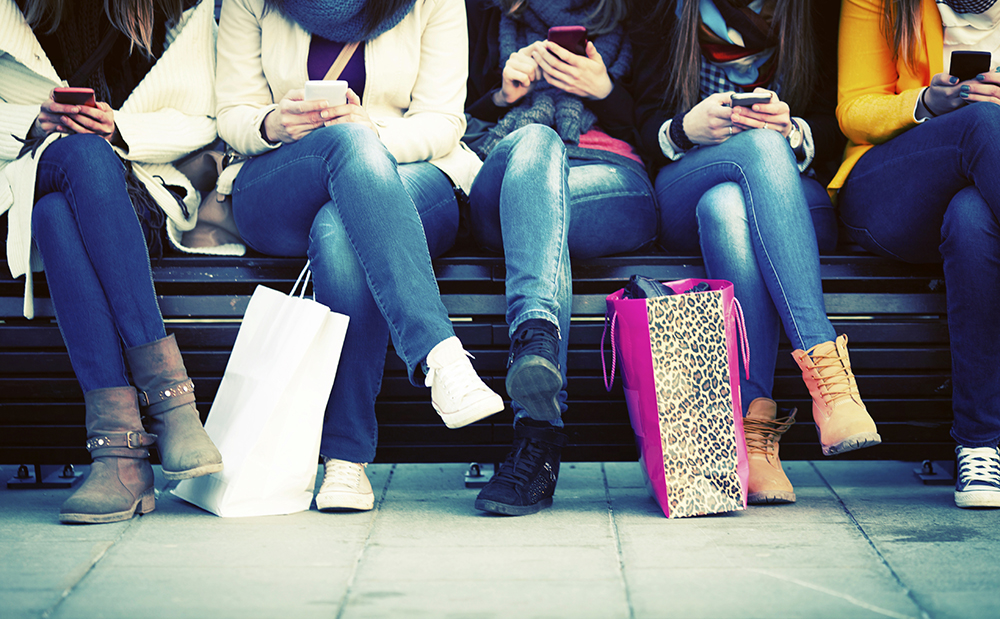Does social media bring us together or push us apart?
The digital world is our fourth dimension. But does social media bring us together or push us apart? We ask Laurence Scott, author of 'The Four Dimensional Human: Ways Of Being In The Digital World'

How does living in the ‘fourth dimension’ affect us?
The ‘fourth dimension’ is a metaphor for the collection of experiences we have that are now based on digital technology; this ceaseless ability to communicate with each other and to gain information about the world around us.
I was sitting at my breakfast table recently, wondering about social media and how so many moments of our lives are being put up for others to comment on and approve or disapprove of; the clichéd example is our meals, but these moments must have an extra quality to them that unposted ones don’t have.
And once we do post these moments out into the world for public consumption, they then have this extra dimension to them. It also struck me that we are constantly being trained by social media to think about moments of our lives with regard to whether they are worthy of promotion at this extra level.
Will we ever be the same again?
I was watching a Woody Allen film the other day and I felt very nostalgic; it was a 1980s film and the characters were at a family party. As the camera moved around the room, I realised that everyone inside those walls was stuck for the whole evening with whoever was physically there. Unless they asked the host to use their phone and call someone else, they really had to make do with the company of the people who were there in person.
Today, I’m not sure that will ever be the case again. I think our ‘solid walls’ – where in a physical sense people are kept together and also kept apart – will never be the same, and it has a huge impact in terms of how present we are around each other, as there will always be other options of people you can communicate with outside those walls.
Are we neglecting the physical world when we’re living in the fourth dimension?
With our limitless opportunities for living online, there’s a real sense that it’s almost a part of our citizenship to get involved in the constant digital communication. Yet at the same time, we are constantly being told via this medium that our physical world and environment is under threat. It’s a great platform for activists to get their messages out there about fracking or the decline of the bee population. So it’s not so much that we are neglecting it, but more that we are hyperaware of it, funnily enough.
Does togetherness count, no matter what the format?
Some people take great joy from keeping in contact with loved ones over Skype or through social media. There’s one example of a grandfather in America who talks to his grandchild every week over dinner, which is a valuable interaction for the grandfather, as the child displays its affection through the fourth dimension.
But what’s interesting, and it’s hard to tell because the child is so small, is whether the child has an affection for the digital interface as the person themselves or as a representation of the person. At the same time, the idea that Skype actually makes people lonelier is a very common feeling, in that there is almost a cruelty in this ability to talk to someone, but not actually be able to reach out and touch them.
I think the most interesting idea is that when we meet face-to-face, there is another person there who is different from us. We understand that there’s another human being to negotiate with and relate to, and there’s never that expectation that we’d know someone fully or be constantly available to someone else. Yet with social media, the idea being sold to us is that we are all ‘in it together’. There is this strange confusion whereby we feel we should be feeling close to people, but social media collapses all distinctions between ‘each other’. We can communicate in this way, and yet we know we are not really totally satisfied.
Have we now become addicted to, or even trapped by our use of social media?
A friend of mine was over from Canada and Skyping her sister and her child back home, and there was obvious jubilation in the ability to call them and say hello. Yet there is another element to connecting via social media, where we wait and wait for a response from someone, or hold a sense of entitlement that people will always be on tap; that everyone in our lives is constantly sitting behind this little door that we can open and shut whenever we want.
There is also silence online; it’s not so much what we’re always saying to each other, but the ways in which we’re not speaking to each other that I think is what people find most difficult to deal with. Take, for example, the ‘seen by’ or ‘read’ function on Facebook or WhatsApp. People have always been waiting by the phone when they expect or want to hear from someone, but now we’re in this new situation in which we know that a silence is particularly targeted at us, that we are alone and not being responded to because the other person is being active on social media but not responding to us. We are becoming attuned to the ways in which we are not speaking to one another.
What role does the fear of our gadgets play in our four-dimensional lives?
On the one hand, we’re constantly being told that there is no going back, that social media is here to stay; going forward it will be part of citizenship and consumerism to have an online presence. But running parallel to that is the idea that these technologies aren’t healthy for us, and there is a huge industry of digital detoxing that takes so many forms. So there’s a strange sense that we’re both obliged and afraid at the same time.
We might feel quite guilty for saying that the advancements into digital technologies aren’t a good thing. But there’s a real craving for spaces that aren’t occupied in any way by wi-fi. It’s amazing that even if we send people to Mars, they’ll be able to tweet their families from there. Even the night sky is being pulled into our grid.
Laurence Scott is author of The Four-Dimensional Human: Ways Of Being In The Digital World (William Heinemann, £20)
Photograph: iStock








